Cost of Honor Read online
Page 18
“So currently we have no suspects,” Tom said.
“No, and it’s possible—probable—that the driver and those behind the attack will remain undetected.”
Oakes’s gut clenched. Adam might have been nothing more than a pawn—and his killers would likely go free. Crimes like that happened every day and often were only solved by luck. As a federal agent, she understood that. As his friend, she raged.
After a few seconds, Oakes set aside the personal feelings that had no place here, as Cam continued, “But what we do have appears to be a well-organized and successfully executed attack on someone who is often in the immediate vicinity of the president. Adam was an insider. I wanted you to know right away.”
“You think there’s a chance of a repeat on someone else close to the president?” Oakes asked.
“Impossible to tell.” Cam didn’t need to voice the unspoken. Every person in the room was aware that her wife was often in the kill zone, the area right around the president where any assassination attempt was likely to incur casualties. These agents were paid to stand in that zone. Blair did it out of love and duty. The only way to keep all of them safe was to see that any threat to the president, no matter how remote or impossible-seeming, was neutralized. She trusted the agents on this detail with far more than the security of an office. She trusted them with the most important person in her life.
Chapter Eighteen
Philadelphia
Game Day minus 35 days
9:17 p.m.
Five minutes into the second half of an evening of Vivaldi presented by the Philadelphia Orchestra, Rebecca’s phone vibrated in her pants pocket. Trying to be as unobtrusive as possible, she slid it out and shielded the screen with her hand. Beside her, Catherine was raptly immersed in the visiting conductor’s interpretation of “Summer” from The Four Seasons, her favorite concerto by one of her favorite composers. Rebecca’s tastes ran more to rhythm and blues, but any evening spent with Catherine was a pleasure. And Catherine’s pleasure was always hers. Too often, the evening ended the way she was concerned this one might.
Hey whatcha doin
Sandy’s code for call me. When Sandy or Dell was working the streets, they always carried burner phones that could not be traced and never used any official lines of communication. Or uncoded messages.
Rebecca leaned close and whispered, “I have to take this call.”
Still watching the first violinist, Catherine slid her hand onto Rebecca’s thigh and squeezed. “I know. Text me if you’re leaving.”
“I will. I love you.”
Catherine smile, as always, lit her world. “I know. Go.”
Muttering apologies to half a dozen patrons—why were they always in the middle seats anyhow—Rebecca made it into the aisle and out to the lobby. She hit the call icon above Sandy’s message and waited.
“Hey,” Sandy said, her voice a whisper. “Trish invited me back to her place. Not sure exactly what the plans are or location, but we’re leaving any minute.”
“Do you have any backup?”
“No. I wasn’t planning on hitting the Oasis tonight, didn’t want to push too hard and make them suspicious, but Trish texted me to meet her. It all went down fast.”
“What about Dell?”
“Uh. She’s got a meet with the Diablos tonight. Something about that gun deal.”
“Can you stall until I can get Watts or McCurdy over there?”
“I don’t think so. I’m in the bathroom and Trish is waiting. I don’t want to lose this. There’s something not right about these two, but I can’t figure it.”
“Leave your phone open,” Rebecca said. “I’m ten minutes from you. I’m on my way.”
“Thanks, Loo.”
Leaving the call open, Rebecca switched screens to text Catherine.
Have to go love you
She didn’t expect an answer. Catherine would stay, enjoy the concert, and take an Uber home. They’d done this before. Too many times, but she’d stopped apologizing. The first year they were together, she’d apologized every time she’d canceled a dinner date, run out halfway through a movie, or never showed at all for an evening with friends. For a long while, she’d wondered—and worried—just how long Catherine would tolerate being shunted aside. Catherine, being Catherine, called her on it before six months had passed.
“Every time you say you’re sorry,” Catherine said as Rebecca headed for the door one night, “you insult me.”
“What?” Rebecca stopped short. “How?”
Catherine put her arms around Rebecca’s neck and looked into her eyes. “I fell in love with a cop, eyes wide open. Every time you have to be a cop at a less than convenient time and then apologize, you’re saying I was either naïve or self-deluding.”
“What?” Rebecca repeated, even more astounded. “I’m just sorry I have to disappoint you!”
“I am a little disappointed our plans were disrupted, but I imagine you are too.”
“Well, yeah.”
“Then there’s no need to apologize.” Catherine had kissed her and shoved her gently toward the door. “Go be a cop, Rebecca. I love you.”
Rebecca had laughed at the time, but she hadn’t forgotten it. She still said she was sorry from time to time, but she’d learned the better words were I love you.
Bounding down the wide marble stairs to the street, she signaled the valet with her badge in one hand, handed him her tag, and said, “Police business. Make it fast.”
“Yes, ma’am,” he snapped. Spinning around, he trotted away.
The valet parking lot was just around the corner, and three minutes later, she jumped into Catherine’s Audi, slapped the emergency light she kept on the floor in the back onto the dash, and headed downtown. Her phone was open on the seat beside her, the speaker icon glowing.
“So, you want to finish your drink?” Sandy said. “I could use another.”
“No, I’m done with it. He waters them anyways.”
Sandy snorted. “They all do that.”
“We got stuff at the apartment. You got a ride?”
“No,” Sandy said. “I was with some friends when you tagged me. I left them and my ride behind. Cabbed over here. You?”
“Yeah, we’re across the river, so I got to drive.”
“Cool. In Camden, you mean?”
“Yeah. Crappy neighborhood, but the view’s not bad.” She laughed, and it didn’t sound like she found it all that funny. “If you like looking at boats and the ass end of Philadelphia.”
“So what’s the deal?” Sandy’s voice was muffled by the white noise inside the bar for a few seconds, but then the background sounds dropped away. “Man, this weather sucks. I’m gonna freeze my tits off out here. Where’s your car?”
They’d left the Oasis.
“Just around the corner on Arch.” Trish laughed. “I think your tits will survive the walk.”
Rebecca cut around a backup on Nineteenth that wasn’t going to unlock whether she had lights flashing or not. No place on the narrow street for people to move over. She was still a few minutes away from the Oasis.
“So, about this thing at your place,” Sandy said. “Are we looking at sex? Because, you know, I’m into you, but—”
“Not Ma—Mark. I have to practically strip naked and start doing myself before he even notices.”
Sandy laughed. “So maybe we should find Mitch, have him go along. Might be more Mark’s thing.”
Trish snorted. “You know, Mitch’s hot. You think he’d fuck Mark?”
“Hey, his deal’s his deal. You’d have to ask him.”
“Kinda like to see that.” A car alarm beeped, and a door opened and closed. “I don’t think Mark would be into it, though.”
“Too bad,” Sandy said. “So, is there a party?”
“No, there’s a meeting.”
“Okay, that’s weird.” Sandy laughed.
“Some friends of Matt’s.” Trish huffed. “Stupid name thing—like it m
atters. Anyhow, you’ll like these dudes. There’s a couple hot chicks, ’cause you kinda swing that way mostly, don’t you?”
“Well, if I had my choice, I’d rather you than him.”
“Yeah, I wish that did it for me. But anyhow, they’re people Matt knows from the rally.”
“Oh,” Sandy said. “That’s cool, then. I really dug that speaker. And like I said—makes so much sense, you know?”
“Yeah,” Trish said, not sounding all that enthusiastic.
“So, this is a nice ride,” Sandy said. “I dig muscle cars, especially red ones like this.”
“It’s got flash. It’s probably the only thing about him that’s flashy.”
“Well, every Corvette is flashy.”
Rebecca smiled to herself as Sandy ID’d the car for her. Only a couple of bridges crossed the Delaware River into Camden, and from the Oasis, the Ben Franklin was the closest. Hoping to pick them up before they crossed, Rebecca changed course away from the Oasis on Arch, swung down Vine, and took a chance that she’d hit the intersection to the bridge before they did. She was almost to the approach lane when a red Corvette shot up onto the bridge. She fell into line three cars behind with a buzzing in her stomach. Her animal instincts had kicked in, the sharp focus of the predator that had spied its prey. She had the target in sight, and a surge of adrenaline laced with hunger and anticipation shot through her. She only wished she wasn’t using one of her people as the bait.
Atlanta, Georgia
12:59 a.m.
Oakes slid onto a stool next to Ari in the Marriott bar. A throng of Braves fans crowded around the opposite end, boisterous and already in their pregame lubricated state.
“Evening,” she said to Ari. “Mind company?”
“Hi. Not at all.” Ari smiled and tilted her head toward the group at the far end of the bar. “As long as you promise not to talk about baseball stats.”
“I don’t think we’ll be able to avoid that. Big doubleheader tomorrow.” When the bartender approached, Oakes added, “Scotch on the rocks. Glenlivet if you’ve got it.”
He rolled his eyes. “Full-service here, Mac.”
“Feels like a big doubleheader to me too,” Ari said.
“You mean the president’s first big trip with you running the show?”
“I’m not exactly sure I’m running the show, not even close,” Ari said, swirling the surprisingly good white burgundy in her glass. She wasn’t naïve enough to think she could control anything on the president’s schedule. Her job was to analyze polls, take the temperature of the electorate, read where the media was headed in term of the next big story, and suggest a path through all that for the president that would put him and his message in front of as many people as possible in the best light possible. “I recommend, the president decides.”
“Yep, that’s the way it goes.” Oakes sipped the scotch. Smoky and smooth. Nice. “I thought you’d be riding down on Air Force One this weekend. That’d be your first trip, right?”
“I wanted to meet with a couple of the producers down here before he arrived. I’m still playing catch-up.”
“Well, considering it’s only been a week, I’m not surprised. How’s it going?” Oakes had seen Ari passing in the halls in the West Wing during the past week, when she’d been standing post and unable to have a conversation. Ari had looked busy, but not frazzled. But then, she suspected Ari never looked frazzled. She had earned a smile and a nod from Ari each time, and oddly, that had felt like a reward.
“I did tell you to ask me in ten days. Time is not up yet,” Ari said with a bit of a tease.
Oakes laughed. “I always have been one to get in ahead of a deadline if I could.”
“Hmm. Impatient?” Ari swiveled on her stool to face Oakes, her eyes alight with amusement. She’d been working nonstop, eighteen hours a day, for a week and this was the first moment she’d had to relax. Her earlier vision of a drink and a long warm shower before curling up with a book vanished the instant Oakes appeared. She was remarkably awake all of a sudden. “Or just competitive? First one in with your homework, first in line for a lab bench in chem lab?”
Oakes shook her head. “Never took chemistry. I was a history major.”
Ari murmured, “Okay, you surprised me again.”
“Me? I can’t imagine very much about me that’s surprising,” Oakes said.
“Oh, you’d be surprised. But don’t change the subject. How did you go from history to law enforcement?”
Oakes was glad for the low lighting in the bar. She was blushing. She’d opened the door to talking about herself, hadn’t she. That happened every time she and Ari talked. The weird thing was, she didn’t mind. Too much. “Okay. Well, I guess it started when I heard Obama speak at a town meeting. I was a junior in college. I suddenly realized that I didn’t want to study the things that had already happened—I wanted to be part of what was happening.”
“And you made a right-angle turn into law enforcement.”
“Well, not exactly,” Oakes said. “More into history, living history.”
Ari was silent for a long moment, and Oakes started to feel foolish. She’d just said that, right? Jeez, if she’d made that comment to any of her team, they’d laugh their asses off. Maybe that’s why she kept a lot of things to herself.
“Are you trying to tell me that you’re a Secret Service agent because you wanted to be close to the person most likely to be making history?”
“You make it sound kind of creepy,” Oakes muttered.
“I’m sorry. I didn’t mean it that way at all.” Ari put her hand on Oakes’s arm where it rested on the top of the bar.
“No worries,” Oakes said, distracted by Ari’s hand. It was damn hot in Atlanta and she was off duty, wearing a polo shirt, one of her go-to shirts when she was dressing down, and her arm was bare. Ari’s fingers were cool on her very hot skin.
“It’s fascinating, that’s all,” Ari went on, seemingly oblivious to the fire kindling beneath her fingertips. “That you didn’t become a Secret Service agent because you wanted to be a supercop or something.”
Oakes laughed. “Well, don’t ever say that out loud around anyone on the detail. We’re not cops. We’re big bad federal agents. There’s no one like us.”
“Of course. Forgive me. How foolish of me. Okay, I’m still trying to figure out why the Secret Service?”
“When I started, all I knew is what I didn’t want to be.”
“Mm-hmm. And?” Ari said, leaning closer.
The noise level from the sports crowd had picked up. That had to be the reason Ari leaned closer. So close their shoulders touched. The scent of Ari’s perfume—dark blossoms and spice—made Oakes’s head swim for a second. She took a deep breath and tugged at the open collar of her polo. Damn, it was hot in Atlanta. “Didn’t want to be behind a desk. I hate computers pretty much, and I like to travel. FBI is mostly in country, CIA is too cloak-and-dagger for me, and the Foreign Service is mostly diplomatic postings. Not my style. So that left joining the military or the Secret Service.”
“I can’t quite see you in the military, although in uniform—” Ari broke off abruptly.
“Are you one of those women that goes for people in uniform?”
“I can’t say I wouldn’t give a woman in uniform a second look,” Ari said.
The tension in Oakes’s belly that had been coiling tighter and tighter as they’d talked ratcheted up a notch. That answered one really important question. And Ari’s hand was still on her arm. Oakes finished her scotch in one big gulp. “What are you drinking?”
“Wine. I’ve still got some left,” Ari said. “And a big meeting tomorrow at eight, so I think I’ll stick to one. But by all means, go ahead.”
“Two’s my limit,” Oakes said. She’d never been much of a drinker, and despite the propensity for her and her colleagues to unwind after a big event with a lot of steam being let off around a bar, she managed to keep it to that almost all the time. When the bartend
er looked her way, she tipped her glass in his direction and said, “A short one.”
“So you’re saying logic brought you around to the Secret Service?” Ari said after the bartender topped off Oakes’s glass.
“Never looked at it quite that way, but I suppose so. I thought about the things that I was good at. I like physical things, I like order, I’m pretty good on a team—I was pretty much into sports in high school and college—and I wanted to do something meaningful with my life.”
“Not an overwhelming sense of duty and patriotism?”
Oakes flushed. Ari sounded serious, so she answered that way. “Maybe a little bit of that too.”
“Can I ask you something personal?” Ari asked.
Oakes snorted. “Ah, isn’t that what you’ve been doing?”
“I guess,” Ari said contemplatively, “but this one seems more so.”
“Okay, you ask, and I’ll tell you if you’re treading somewhere off-limits.”
“When you considered your job, did you consider that it might cost your life?”
“That’s not a rare question,” Oakes said. “And the answer is, we don’t think about it. It’s part of the job. We’re trained to react to danger in a certain way, to respond with action, to run toward the burning building, and not away. You don’t think about all the rest of it.”
“Okay,” Ari said. “It takes a certain kind of person who’s willing to do that.”
“That’s why not everyone does it.”
“Yes, I get the part where special comes in.”
The slow, deep warmth in Ari’s voice hit hard in the pit of Oakes’s stomach. She wasn’t just hot any longer, she was freaking blazing. She wasn’t even close to drunk, but her head reeled and she wanted to forget about being smart. She wanted to cross those last few inches and kiss Ari Rostof more than she’d ever wanted anything or anyone in her life. Fucking Atlanta always made her nuts.
“What about you,” Oakes said before she lost the last little bit of her mind. “How did you end up doing what you’re doing?”
“A little bit the same way you did. I discovered that I’m good at organization. And political consultation is nothing if it’s not about organizing—organizing people to do certain work, gathering data and sorting through opinions and then organizing a message. It’s about getting other people to do what you want.”

 Secrets of the Heart
Secrets of the Heart Clinical Trials
Clinical Trials Blessed Benediction
Blessed Benediction Happy, Happy Birthday, Baby
Happy, Happy Birthday, Baby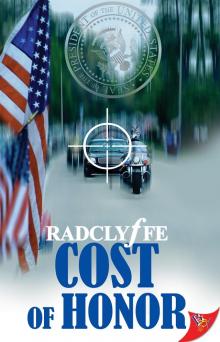 Cost of Honor
Cost of Honor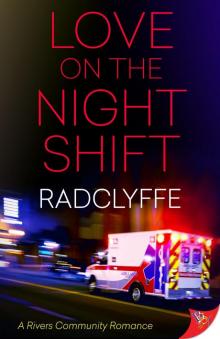 Love on the Night Shift
Love on the Night Shift Top of the Class & Bonus Night
Top of the Class & Bonus Night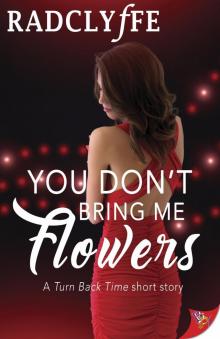 You Don’t Bring Me Flowers
You Don’t Bring Me Flowers When Dreams Tremble
When Dreams Tremble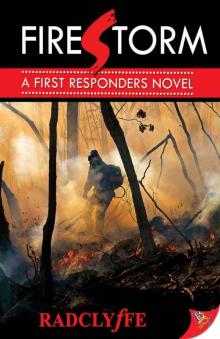 Firestorm
Firestorm The Color of Love
The Color of Love Women of the Dark Streets
Women of the Dark Streets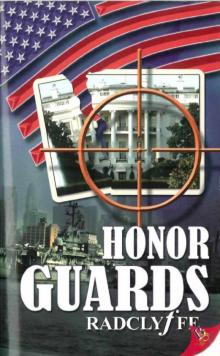 Radclyffe - (Honor 4) - Honor Guards
Radclyffe - (Honor 4) - Honor Guards Honor 03 - Love And Honor
Honor 03 - Love And Honor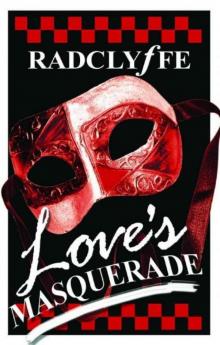 Love's Masquerade
Love's Masquerade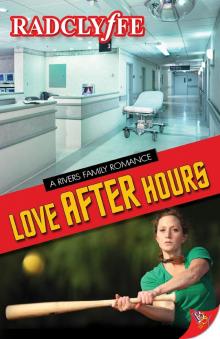 Love After Hours
Love After Hours OMGQueer
OMGQueer A Matter of Trust
A Matter of Trust Honor Under Siege
Honor Under Siege Best Lesbian Romance 2009
Best Lesbian Romance 2009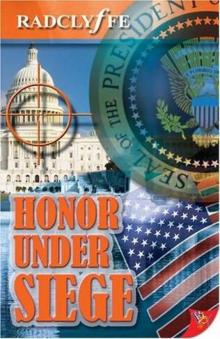 Honor 06 - Honor Under Siege
Honor 06 - Honor Under Siege Best Lesbian Romance 2012
Best Lesbian Romance 2012 Breathless
Breathless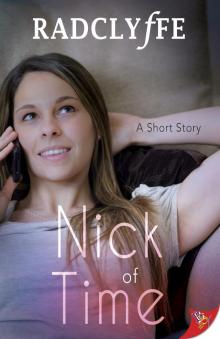 Nick of Time
Nick of Time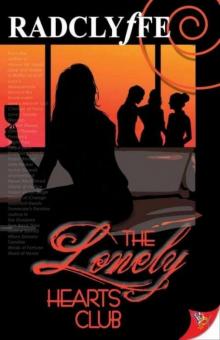 The Lonely Hearts Club
The Lonely Hearts Club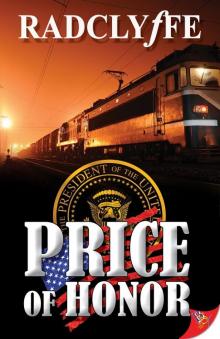 Price of Honor
Price of Honor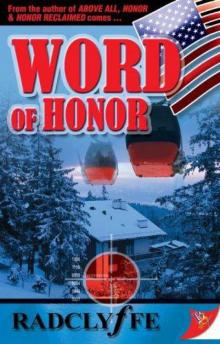 Word of Honor fr-7
Word of Honor fr-7 Winds of Fortune (Provincetown Tales Book 5)
Winds of Fortune (Provincetown Tales Book 5)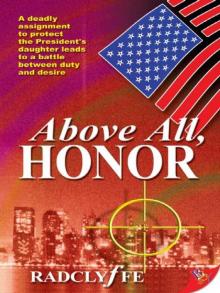 Above All, Honor
Above All, Honor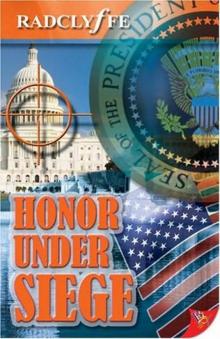 Radclyffe - Honor 06 - Honor Under Siege
Radclyffe - Honor 06 - Honor Under Siege Distant Shores, Silent Thunder
Distant Shores, Silent Thunder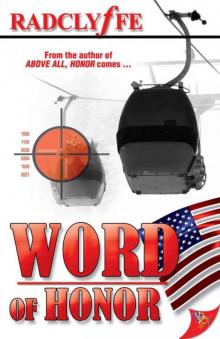 Word of Honor
Word of Honor Word Play
Word Play Fated Love
Fated Love Homestead
Homestead Radical Encounters
Radical Encounters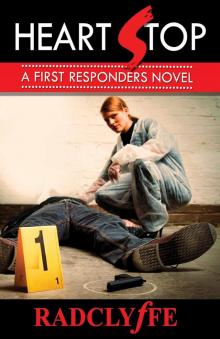 Heart Stop
Heart Stop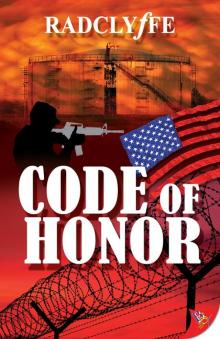 Code of Honor
Code of Honor Myth and Magic
Myth and Magic Wild Shores
Wild Shores Oath of Honor
Oath of Honor Desire by Starlight
Desire by Starlight Love Burns Bright
Love Burns Bright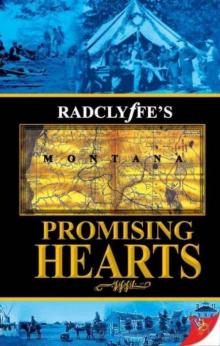 Promising Hearts
Promising Hearts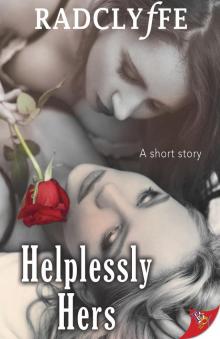 Helplessly Hers
Helplessly Hers Love & Honor h-3
Love & Honor h-3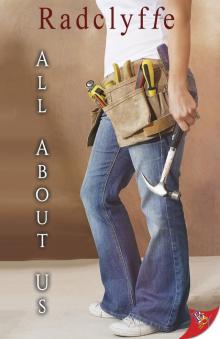 All About Us
All About Us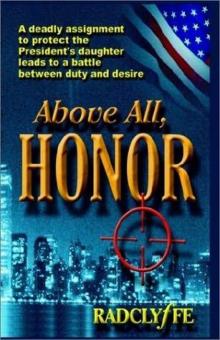 Honor 01 - Above All Honor
Honor 01 - Above All Honor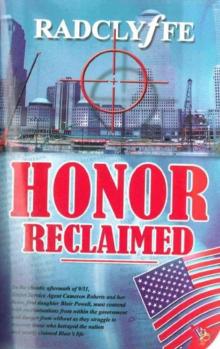 Honor 05 - Honor Reclaimed
Honor 05 - Honor Reclaimed Innocent Hearts
Innocent Hearts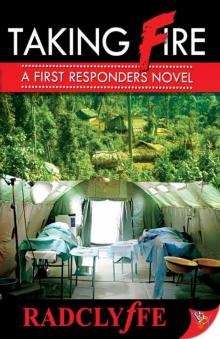 Taking Fire
Taking Fire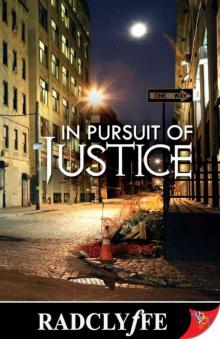 In Pursuit of Justice
In Pursuit of Justice Love's Melody Lost
Love's Melody Lost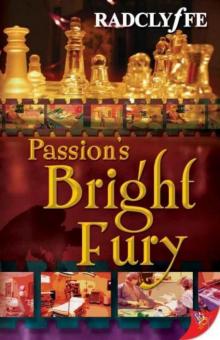 Passion's Bright Fury
Passion's Bright Fury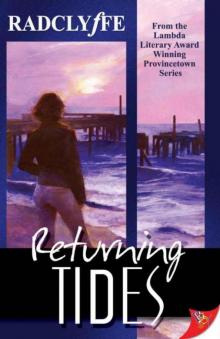 Returning Tides
Returning Tides Change of Pace
Change of Pace Safe Harbor
Safe Harbor Night Call
Night Call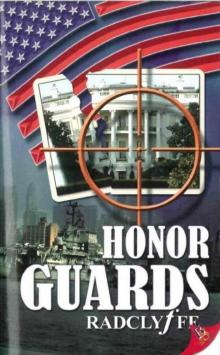 Honor 04 - Honor Guards
Honor 04 - Honor Guards Honor Bound
Honor Bound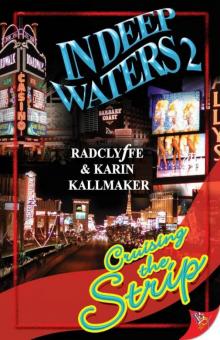 Cruising the Strip
Cruising the Strip Above All, Honor h-1
Above All, Honor h-1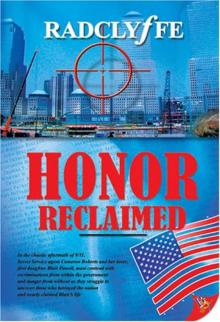 Honor Reclaimed
Honor Reclaimed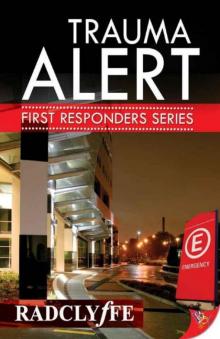 Trauma Alert
Trauma Alert Love On Call
Love On Call Best Lesbian Romance 2014
Best Lesbian Romance 2014 Discovery
Discovery shadowland
shadowland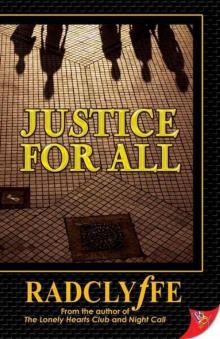 Justice for All
Justice for All Best Lesbian Romance 2011
Best Lesbian Romance 2011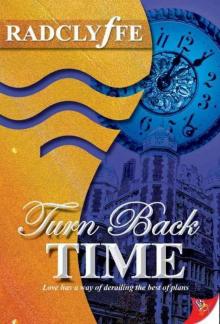 Turn Back Time
Turn Back Time Winds of Fortune
Winds of Fortune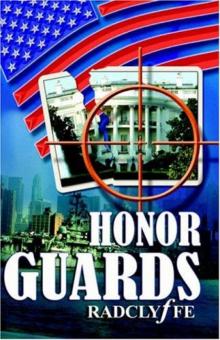 Honor Guards
Honor Guards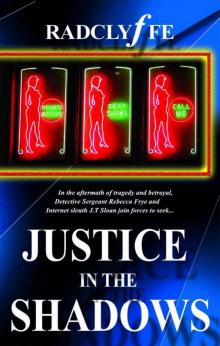 Justice in the Shadows
Justice in the Shadows Love's Tender Warriors
Love's Tender Warriors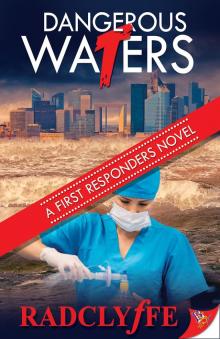 Dangerous Waters
Dangerous Waters First Sight
First Sight By the Light of the Moon
By the Light of the Moon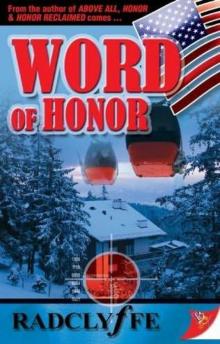 Honor 07 - Word Of Honor
Honor 07 - Word Of Honor Tomorrow's Promise
Tomorrow's Promise Amor and More
Amor and More Best Lesbian Romance 2010
Best Lesbian Romance 2010 Sheltering Dunes (Provincetown Tales Book 7)
Sheltering Dunes (Provincetown Tales Book 7) Love And Honor
Love And Honor Secret Hearts
Secret Hearts Prescription for Love
Prescription for Love Passionate Rivals
Passionate Rivals Against Doctor's Orders
Against Doctor's Orders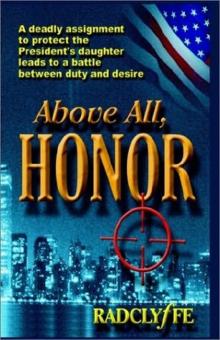 Radclyffe - Honor 01 - Above All, Honor
Radclyffe - Honor 01 - Above All, Honor Honor 02 - Honor Bound
Honor 02 - Honor Bound Beyond the Breakwater
Beyond the Breakwater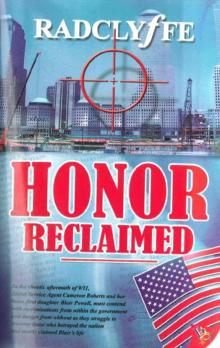 Radclyffe - (Honor 5) - Honor Reclaimed
Radclyffe - (Honor 5) - Honor Reclaimed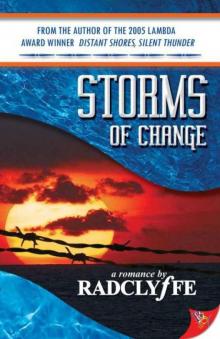 Storms of Change
Storms of Change Honor Bound h-2
Honor Bound h-2 Justice Served
Justice Served Sheltering Dunes
Sheltering Dunes Best Lesbian Romance of the Year
Best Lesbian Romance of the Year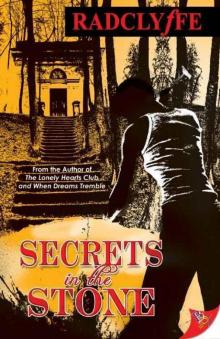 Secrets in the Stone
Secrets in the Stone